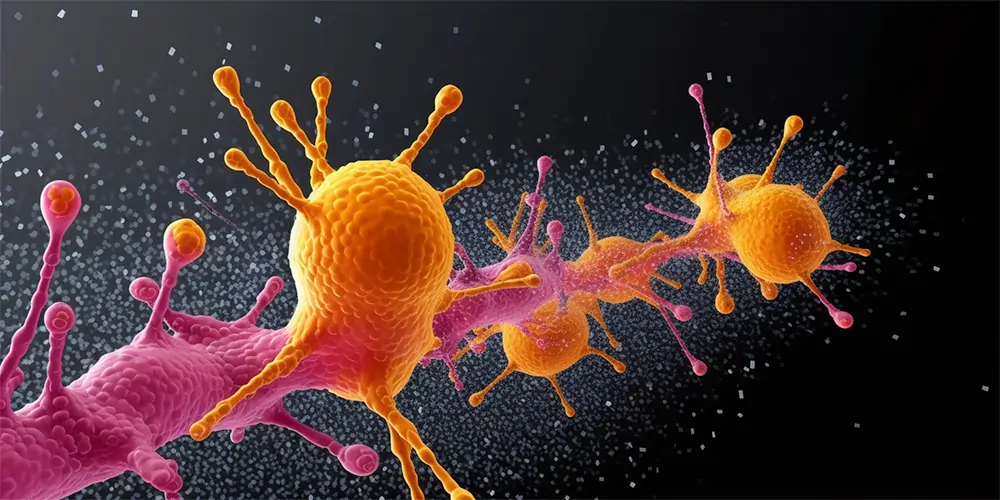Groundbreaking Research at King’s College London
In a significant development, scientists at King’s College London, funded by Breast Cancer Now, have designed an Artificial Intelligence model with the potential to forecast the spread of breast cancer based on lymph node changes.
The researchers suggest that this breakthrough model could have wide-ranging implications in planning and customising patient treatment.
The AI model could assist doctors in gauging the risk of secondary (incurable) breast cancer, thereby providing another tool to help prevent it.
Featured in The Journal of Pathology, this study underscores the crucial role of lymph node immune responses in forecasting the probability of disease metastasis. This is particularly relevant for women who have triple-negative breast cancer.
The Role of Lymph Nodes
Lymph nodes, small tissue masses distributed across the body, are vital in warding off infections. In the context of breast cancer, these nodes – especially those in the axilla, nearest to the tumour – are often the initial sites targeted by cancerous cells.
As a result, patients with cancer spread to lymph nodes often need more intensive treatment.
What the King’s College research team discovered, however, is the potential to predict the spread of cancer based on the immune responses within the lymph nodes, even before cancer cells appear in these nodes.
This revolutionary discovery enhances our comprehension of the intricate role that immune responses play in determining a patient’s outlook.
The Fight Against Breast Cancer
AI technology is increasingly used to diagnose and treat diseases, with breast cancer no exception.
The King’s College team utilised AI to scrutinise more than 5,000 lymph nodes donated by 345 patients to biobanks, confirming that the model could determine the likelihood of breast cancer metastasising to other organs.
The lead researcher, Dr Anita Grigoriadis, shared her enthusiasm for the potential of this model: “By demonstrating that lymph node changes can predict if triple-negative breast cancer will spread, we’ve built on our growing knowledge of the important role that immune response can play in understanding a patient’s prognosis.”
The team is now preparing to test the model further at centres across Europe as they strive to make it more robust and precise.
As part of this endeavour, they plan to develop AI-powered software based on their model for pathologists to use in the National Health Service (NHS).
Tackling the Challenge of Triple-Negative Breast Cancer
Triple-negative breast cancer, forming approximately 15% of all breast cancer diagnoses, is notable for its aggressive behaviour and an increased likelihood to relapse or spread in the early years following treatment.
The capability to anticipate the progression of this specific cancer subtype could be instrumental in enhancing patient prognosis.
Dr Simon Vincent, Director of Research, Support and Influencing at Breast Cancer Now, highlighted the significance of this research: “If thanks to this research, it’s possible to provide women with more tailored treatment and care based on the likelihood of their breast cancer spreading, it could help to save lives and reduce stress and worry. We look forward to further findings to understand how this could work in practice to benefit patients.”
The Future of AI in Cancer Treatment
The study’s results offer promising prospects for the application of AI in treating breast cancer, marking a significant transition from traditional pathology practices towards the use of cutting-edge technology.
As Grigoriadis noted, “The transition from assessing tissue on glass slides under a microscope to using computers in the NHS is gathering pace.”
However, while the study has made an impressive stride towards understanding and predicting the spread of triple-negative breast cancer, more research remains crucial to realise its full potential in practical, clinical application.
This pioneering project received funding from the Asda Tickled Pink campaign, Cancer Research UK, and the Medical Research Council. The breakthrough affirms the significant contributions of these organisations in advancing breast cancer research.




